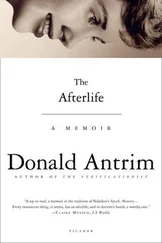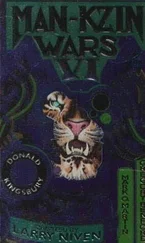I imagined kissing her or maybe nibbling a breast, and she said to me, “Tom, Manuel and I are having a conversation. Why must you always make problems for everyone?”
“I can’t stop thinking about those afternoons we spent in the book and manuscript vault,” I whispered to her, effectively acknowledging the pseudo-oedipal triangle that consisted of this woman, Bernhardt, and me.
“You’re ridiculous,” Maria said. She wore a little smile, and I could see from this smile that she was, as I knew, a woman interested in pain, and that I still had a chance with her after all these years.
How pretty her hair looked, tugged back hard away from her forehead and fastened behind her neck, severely clasped there. Maria’s hair’s different browns and occasional dyed-red strands ran together then spilled behind her shoulders.
“Meet me in the parking lot after dessert,” I said, and immediately regretted it. What was dessert after a meal like ours? And she would never come to the parking lot. It was best to face facts. I’d have no luck with her. Meanwhile Bernhardt, if he and Maria were, as I imagined, in their love affair, Bernhardt would be enraged with me, jealous or at least concerned about his preeminence — therefore humiliated — whether Maria contrived to meet me or not.
And so it was. Richard’s arms around my chest squeezed tighter. His breaths puffed and blew hard against my neck. He was upset, and the result was that once again I flew out of my manhandled body, up like a bird caught in a house, flapping over heads and too close to walls, unable to alight at windows that were, anyway, mostly shut.
How I wished I could’ve flown out a window and home. I admit it’s a sentimental, weak idea; I have acknowledged already the awkward romanticism expressed in this kind of farfetched, escape-by-flight scenario, and can only say at this point, in my defense, that it was fast becoming the warm time of year, and that songbirds were returning north to lay eggs. You could hear them, all the migratory birds, the robins and the cardinals and the speckled whatevers, crying and chattering from the trees surrounding the Pancake House parking lot. And across town, at home, small trees and the flowering shrubs planted long ago by Jane had blossomed and were beginning again to show their first startling colors in advance of summer’s deeper greens. It was April, and yellow tulips in a row before the fence out back had shot up to flower brightly while nights were still cold. Geraniums in a pot on the porch bloomed red. The Pritchetts’ magnolia, partly shading their narrow, overplanted yard next door (Veronica Pritchett’s unpleasant voice can always be heard, on warm evenings, reprimanding her husband, Sam, who cowers inside and leaves the gardening to her), reached branches across the high wooden fence and released petals gently onto our property, a half-moon of white underneath the tree’s limbs.
Soon the nesting doves would appear, as they have each recent year, and settle on the windowsill beneath the air conditioner wedged into our bedroom window, the “window shaker,” as appliance installation men refer to portable units like ours. There is a nook between sill and machine, broad and high enough for a nest. Our air conditioner gives yearly sanctuary to chicks, a protective ceiling against the hawks that circle on warm drafts rising from the flats along the river. Hatched baby doves flutter wings against the air conditioner’s metal undercarriage, and this rapping made in June by feathers against steel is loud in the bedroom, even with the window shaker blowing on high.
Occasionally, hearing birds in the hour before light, Jane and I will wake, disturbed by babies.
“There they are,” Jane might say in a way that sounds sleepily accusing or, perhaps — if I am already lying awake pondering birds, babies, and my own insufficiencies; if I am hearing her, in other words, through a filter of chagrin — mournful. Mournful over what? Birds?
“They’re sweet,” I might whisper in an effort to smooth over any subtextual roughness, any hard feelings that could threaten, so early in the morning, our happiness.
It never works to put out fires before the fires have caught. I am reminded of a Saturday morning at the house — this was not long ago, I think, though I will admit it gets harder and harder, these days, to be at all certain about time and its too rapid passing — when Jane marched into the bathroom while I was on the toilet. She said, “Tom, is there something I could be doing that I’m not, you know, doing?”
“What do you mean?”
“You know.”
“No, I don’t.”
She shrugged and said, “In bed?”
“Sexually?”
“Yes. Sexually.”
“I don’t know. I don’t think so, right offhand. Maybe. I don’t know,” I lied.
“Because you can tell me. You know that. If there’s something I’m not doing. Sexually. That you would like.”
“Well,” I said, in order to shift attention away from me and politely hurry this conversation along — I was, as I have mentioned, sitting on the toilet, boxer shorts wrapped around my ankles—“Jane, is there something you want me to do for you?”
“That’s not why I brought this up.”
“I didn’t say it was. I was only asking if maybe there is something new you want to try in bed, but you’re reluctant to say what, or you don’t exactly know what, and so you’ve asked me about me in order to find out, surreptitiously, about you.”
I was nearing the point at which it would become impossible to hold in, any longer, what felt like an enormous shit on the way. I mention this only because it is true— was true, that cold morning as I sat on the toilet watching Jane leaning with hips against the sink, Jane staring down at her bare feet, her pretty toes on the icy bathroom floor — and not because I feel any extraordinary interest in scatology or the bodily mechanics of defecation. Naturally I realize that much has been written, in my profession, on the intimate relationship between feces and neuroses. It is not, however, in either an academic or a clinical spirit that I confess my discomfort in the bathroom with Jane leaning back talking about love. I said to her, “Honey, if you’re uncomfortable asking for something, you may be imagining desire as something located inside me, in order to relieve your own tension and make me the container for your erotic fantasies.”
“Can’t you leave that stuff at the office, Tom?”
“Seriously, Jane. You started this conversation, I didn’t,” I said, petulantly, and felt the beginnings of the bowel movement. Jane shifted her weight, pulled her robe tightly around her waist, then resettled herself against the wall behind her back and the sink rim beside her. I felt embarrassed. Certainly there is nothing attractive about an unshaved man on the toilet in the morning. Actually, Jane likes to watch me pee; she says it looks friendly — that’s her word, and I appreciate the sentiment behind it. Usually, though, Jane doesn’t hang around when I’m about to crap, and I extend her the same courtesy; in this respect we are probably like most sensible couples who plan to stay together over time. We respect one another’s shame. Let me say in this light that I take no special pleasure in reporting on my bowel movements, and would not do so for one minute were it not for the fact that Jane was showing no sign of leaving the bathroom. In the meantime I was chattering and pontificating, loudly, to cover the unromantic, humbling sound of shit hitting the water. “It is not unusual,” I announced from the toilet, “to invest other people with precisely those qualities or feelings that we most wish we did not ourselves possess, qualities and feelings that we have not learned to accept or even recognize in ourselves.” Splash. “A great deal of antisocial pathology is actually a consequence of this tendency to search out and find the most discomfiting aspects of ourselves in other people, frequently the people closest to us.” Splash. “We then feel permission to criticize these bad others, conveniently throwing off our own psychosexual confusion and self-loathing in the process”—plop, splash—“thereby symbolically aligning ourselves, like good children in a bad family, with the culture of blame and deceit.”
Читать дальше












